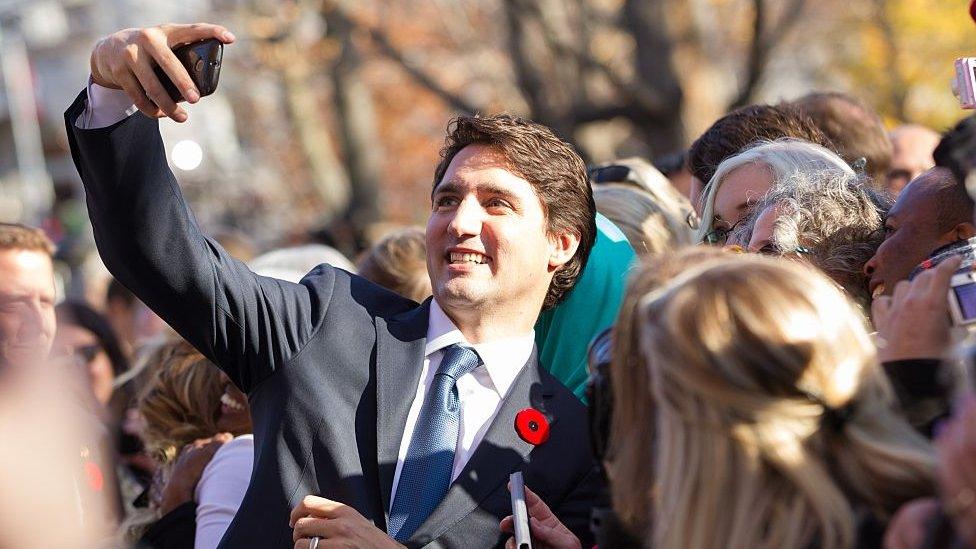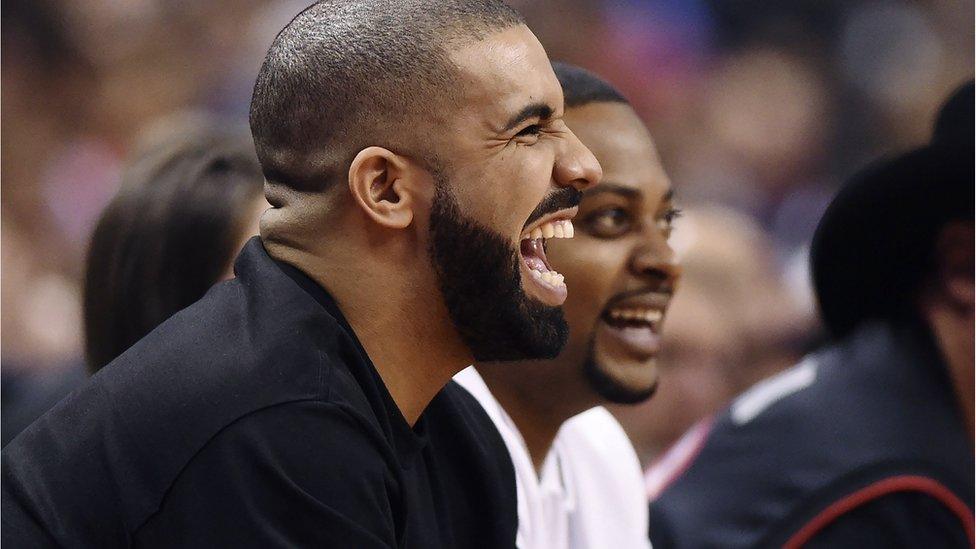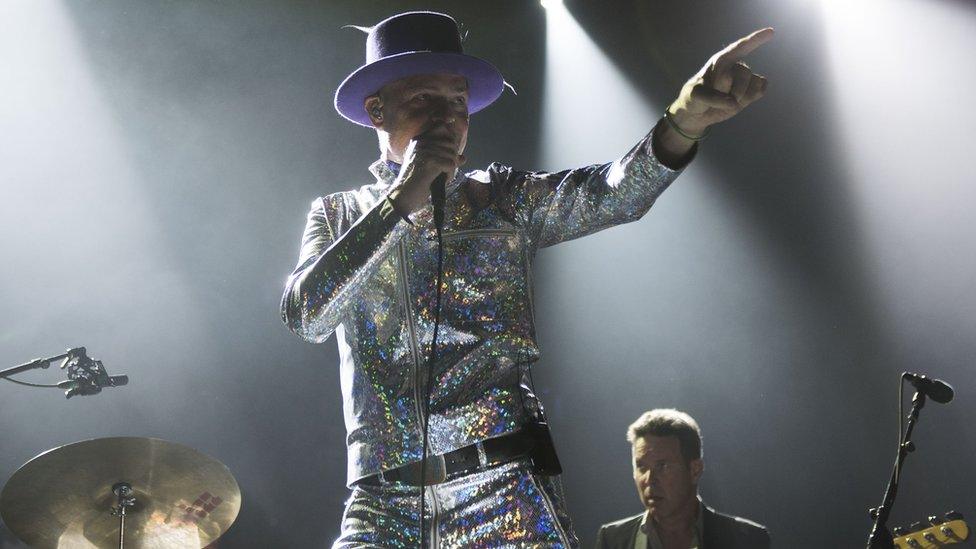2016: The Year of the Canada Fan
- Published

The past year saw Canadians back their own culture like never before.
Canadian culture has always been a bit of a mystery, even to Canadians.
We're not particularly fond of flag-waving, and it's rare to hear rowdy chants of "Ca-na-da! Ca-na-da!" break out at a bar unless, of course, the hockey game is on.
But over the course of the past year, Canadians have made concerts national events. They have attended playoff games in droves, cheering on their teams and jeering anyone foolish enough to doubt them. And when the Toronto Blue Jays had a hot streak, Canadians become some of the loudest supporters of America's favourite pastime, baseball.
Maybe blame it on Justin Trudeau.
The telegenic prime minister began 2016 on the heels of a selfie-filled election victory and a flashy Vogue Magazine cover. Tongues wagged - wasn't the whole thing a little too tacky, a little too American?
"Playing dress-up for the photo was silly" tweeted one particularly grumpy journalist.
But the celebrity treatment was only getting started.
Everywhere Mr Trudeau goes, he's surrounded by a throng of people, Canadians and foreigners alike, eager to take their picture with him. When he visited Washington for a state dinner, his meeting with outgoing president Barack Obama was heralded as a bromance for the ages.

Toronto rapper Drake has made it big abroad, but he still supports his hometeam, the Toronto Raptors.
While Trudeau's popularity is by no means assured at home, his rising star has caused more than a few media pundits to ponder the once-unthinkable: could Canada be cool?
"It's all very exciting, eh? But still … Canada? The land of hyper-politeness and constant apology? The home of maple syrup, poutine, the gentle sport of curling and 10% of the world's forests?" the New York Times gently scoffed earlier this year, external.
Fans of the Toronto Raptors certainly seem to think so. The basketball team has developed a reputation for having some of the most devoted fans in the NBA, who proudly and loudly chanted the team's slogan "We the North" throughout the team's historic playoff run, external.
Adding to the frenzy was the appearance of Toronto rapper Drake. As the Raptors' celebrity ambassador, he showed up one night for a surprise performance when the team took on the Indiana Pacers.
It was the apex of Raptorsmania, and for the rest of the team's playoff run, fans would randomly scream Drake's name during the game as if calling on the messiah.
But nothing quite rallies Canadian fans together more than feeling slighted.
When the Raptors were left out of a CBS Sports poll on who would win the championship, it triggered a Twitter hashtag: #WetheOther.
"Please don't hesitate to have your people call my office to get prime camera positions for the parade after the Toronto Raptors win the NBA Championship," Toronto Mayor John Tory wrote to CBS Sports. "We will mark their space as 'other.'"
That love for the underdog is partly what helped endear the band The Tragically Hip to so many Canadian fans over the years, and sparked national mourning when frontman Gord Downie announced he had terminal brain cancer this spring.
Fans openly wept, and everyone from Mr Trudeau to actor Will Arnett expressed their condolences.
When the band announced they would tour this summer to promote their latest album, they were greeted with the kind of fan frenzy usually reserved for secret Beyonce album releases.

Gord Downie is known for his flashy outfits as well as deep lyrics
Tickets sold out in minutes, and soon the biggest story about the Hip wasn't Downie's cancer, but whether scalpers were ruining the show for true fans.
But while Downie, with his feathered hats and reference-heavy songs like "Bobcaygeon", may seem like an odd choice for a national icon, his disregard for the trappings of American pop stardom helped cement his status as a truly Canadian legend.
"[Interviewers] always ask us about our success or lack of success in the States, which I find absurd," Downie said once. "While that is a story of the band, there are so many other stories."
Almost 12 million people tuned into the live broadcast of the tour's final concert in Kingston, Ontario. For about three hours on that summer night in August, a third of the country stopped what they were doing and listened to the band play.
It was the kind of cultural touchstone that happens only once in a generation, if that.
After the first encore, the rest of the band left the stage, leaving Downie alone with the audience as wave after wave of applause poured over him.
It was so deafening; it was almost like silence.